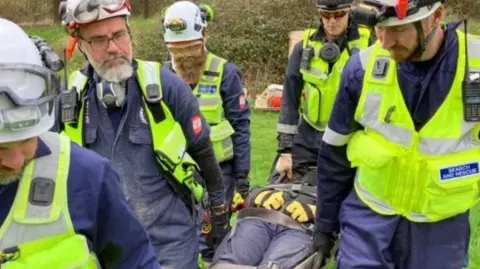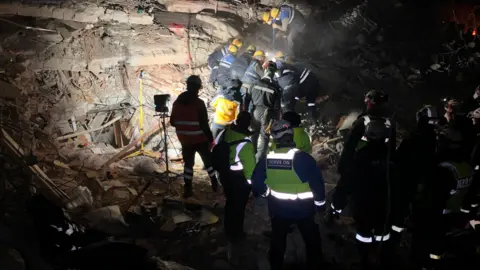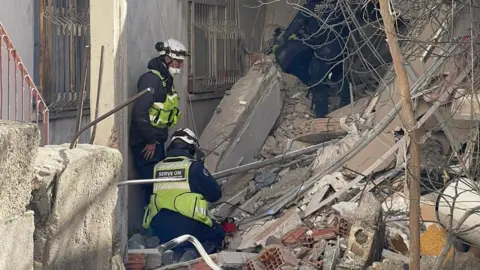Disaster volunteers set off for 'fake quake' training
 Serve On
Serve OnTen volunteers from a disaster response charity are flying to the Balkans later to respond to an imagined earthquake.
It forms their final assessment for Wiltshire charity Serve-on so they can then be deemed "operational" to UN standards and be deployed to future disasters.
It is a culmination of two years of training, in which they will arrive at the charity HQ in Chilmark, prepare, and fly out to the "disaster", where there will be a realistic scenario, including collapsed buildings, crushed vehicles and victims.
They are travelling to Kosovo, where there is a world-class International Training Centre for them to have their search and rescue skills assessed.
 Serve On
Serve OnWhen the volunteers arrive in Chilmark, they will have to react as though the fake quake is real, gathering information, preparing rescue equipment and their own personal kit, and dashing to an airport to deploy.
Existing team members will be in Kosovo to create scenarios and feed information to them from the Serve On operations room in Wiltshire, as would happen at an actual disaster.
This set of the charity's candidates are from a variety of backgrounds all over the country, from Salisbury to Manchester.
They include a financial adviser, a firefighter, a civil engineering student, a highways analyst, a paramedic, a police officer, a coastguard technologist, a gas engineer, a National Grid project manager and a bomb disposal technician.
 Serve On
Serve OnThe charity is constantly training new recruits, as the volunteers are not available all the time, so a large pool of people is needed.
New volunteers train for around two years, being trained in urban search and rescue techniques, rope rescue, water rescue, navigation, communication and base-building.
Instructors give their own time and skills too, with the money going into transport costs, equipment, facilities and the provision of suitable sites.
Recruits fund their own personal kit and contribute to the assessment through their own fund-raising, but it still costs the charity up to £8,000.
